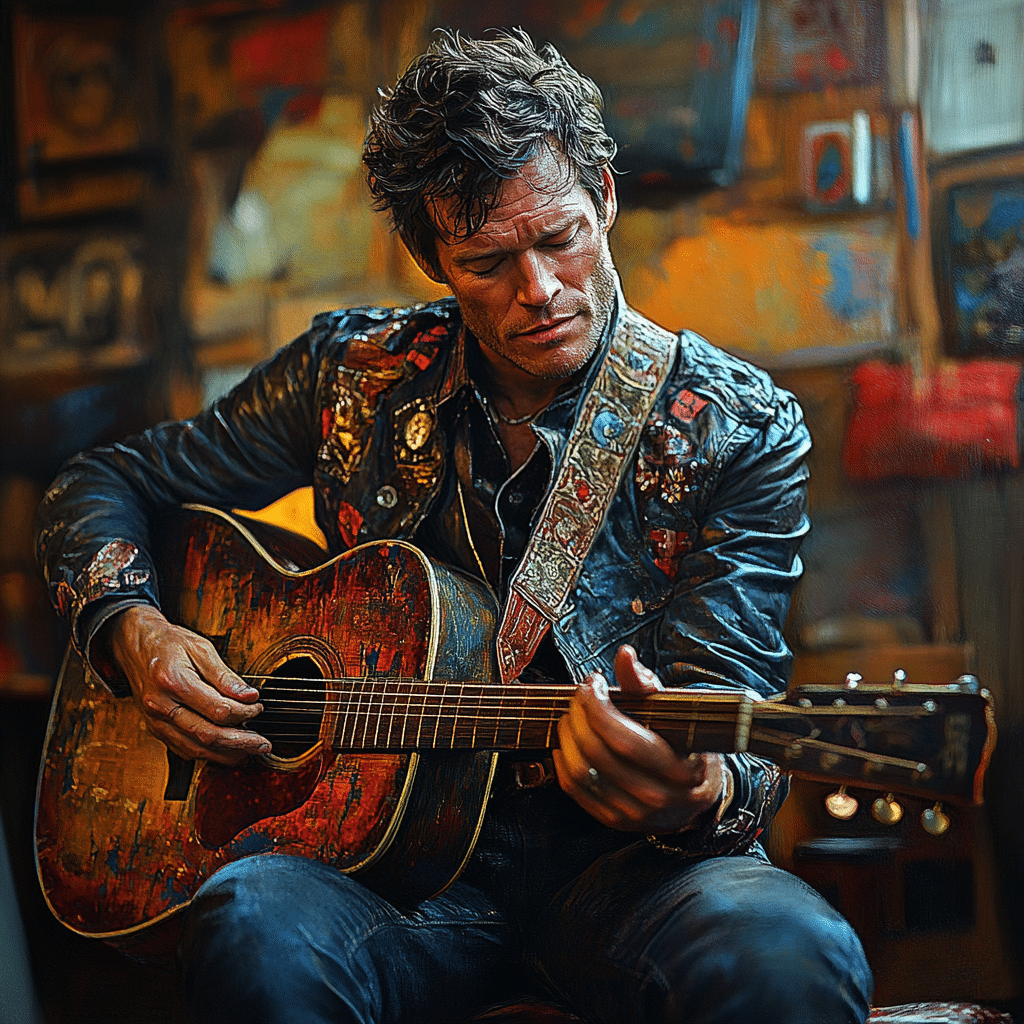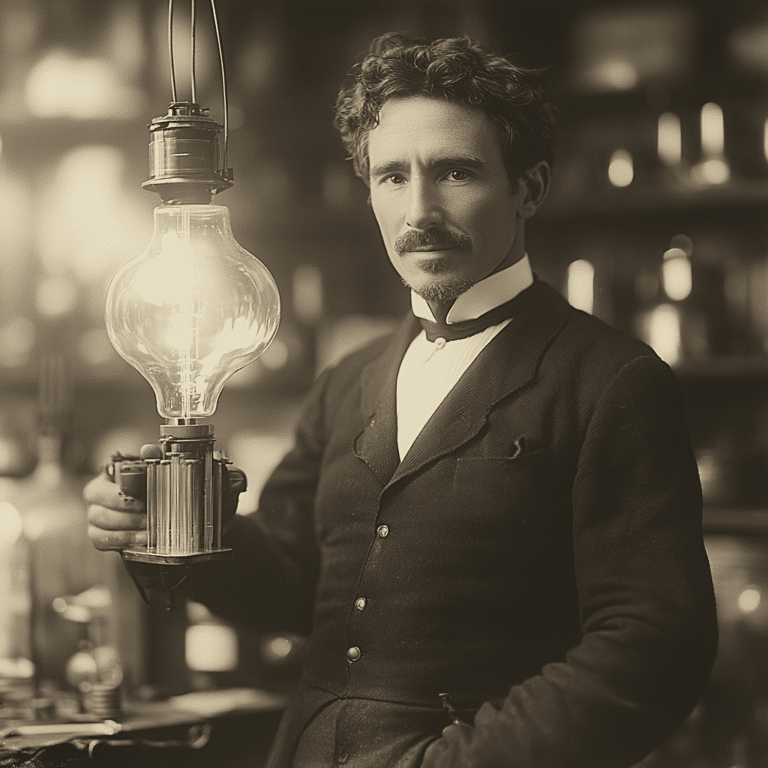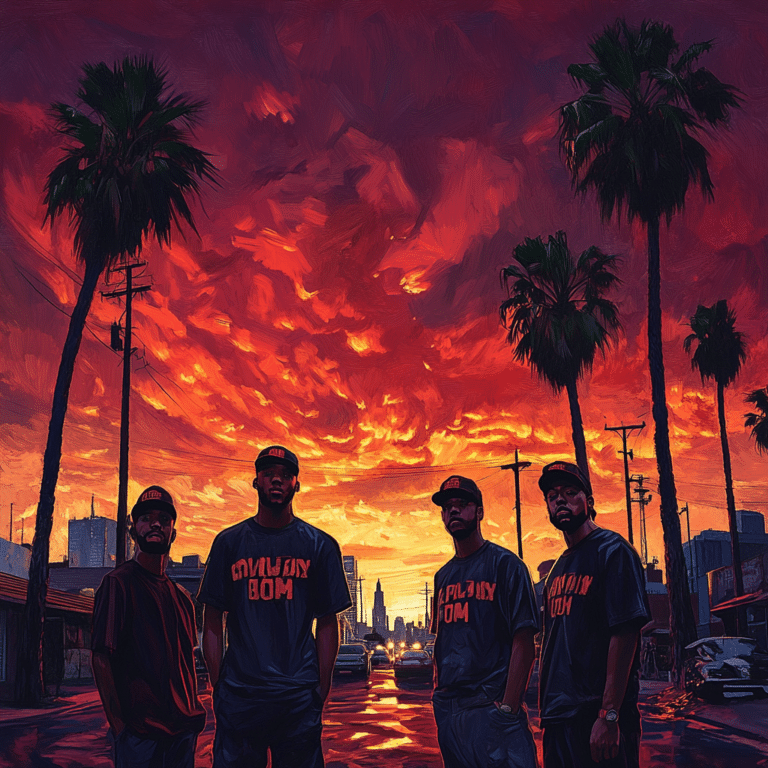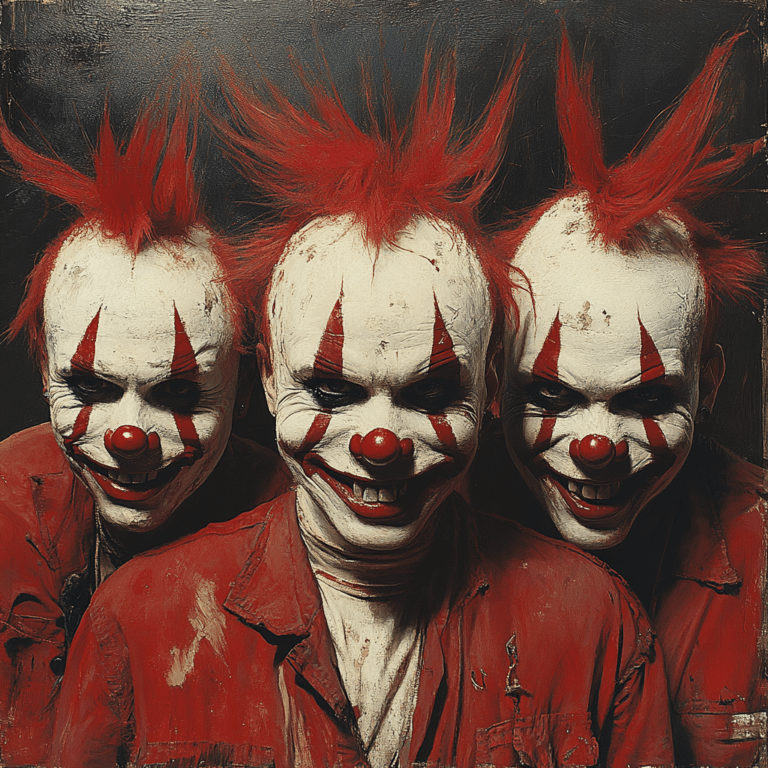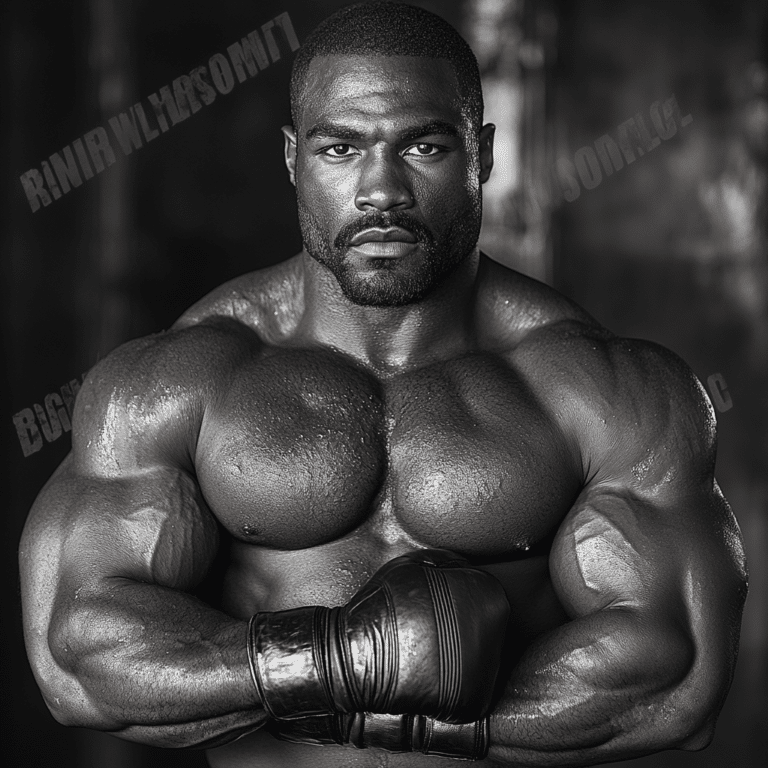When we think of Breaking Bad, one name always rises to the top: Gus Fring. This character, brought to life by the extraordinary Giancarlo Esposito, embodies a world of complexities that makes him one of the most fascinating figures in television history. Gus Fring isn’t just a kingpin; he’s a master of duality—presenting a clean-cut image as a fast-food restaurant owner while orchestrating a sprawling drug empire behind that mask. Buckle up as we explore the layers of this notorious criminal, his strategies for success, and the cultural impact he’s made along the way.
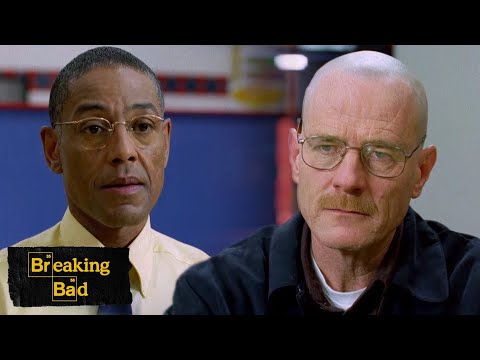
The Duality of Gus Fring: A Character Study
Gus Fring is the guy you love to hate. He’s calm, collected, and oh-so-charming, especially when he’s serving up those delicious chicken meals at Los Pollos Hermanos. But beneath that polished exterior lies a cold, calculating mind. His dual identity generates intrigue and fear simultaneously. Every interaction reveals with surgical precision how he commands the room—whether it’s with his employees or his enemies. The juxtaposition of his genteel demeanor against the backdrop of ruthless criminality makes us question our moral compass: Can someone be both a businessman and a monster?
When Gus encounters Walter White, things get even juicier. He sees in Walt the potential to boost his business and satisfy his own ambitions—manipulating him like a chess piece to achieve his goals. It’s a testament to Gus’s psychological depth and strategic foresight that he could recognize not only Walt’s brilliance but also his vulnerabilities. Seeing the ruthlessness of his actions, it’s almost ironic that a man running a fast-food chain can evoke such terror—reminding us that appearances often deceive.
In Breaking Bad, Gus Fring is more than just a villain; he’s a representation of reality’s darkest corners. His journey is a reminder of the fine line between hero and villain—one that he skillfully walks, leaving the audience eager to learn more about his motives and choices.
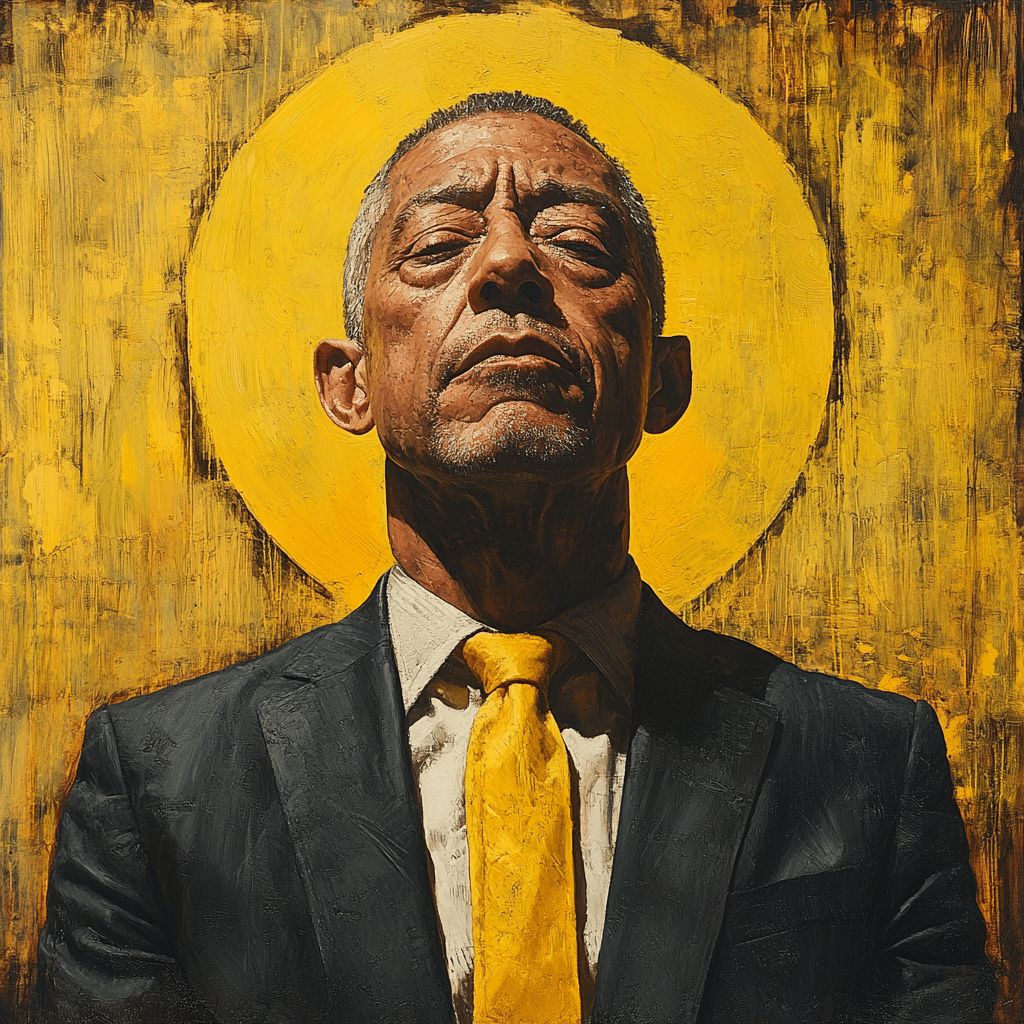
Top 5 Strategies Gus Fring Used to Build His Empire
Oh, you didn’t think Gus Fring just stumbled into power, did you? Nah, this dude had a plan. Here are five strategies that clearly illuminate the road he traveled to become a drug lord:
Gus knew that low-key was the way to go. By wrapping his illegal activities in a shiny, legitimate business, he evaded law enforcement like a pro magician. Like a bear playing hide and seek, he blended in so well that no one thought to look close enough. Spoiler: They should have!
Gus was not a lone wolf. He partnered with the Salamanca family before eventually teaming up with Walter White. But don’t be fooled—Gus just didn’t make friends for kicks. He read people like a book, made deals that would boost his profile, and meticulously crafted alliances that would fortify his empire in ways others simply couldn’t imagine.
While other players in the drug trade went with “whatever works,” Gus was all about quality. He hand-picked suppliers and ensured his product was top-notch. When it comes to drugs, it’s not just about quantity—it’s about having a consistent, quality brand. Like picking the best Shea moisture leave in conditioner for your curls—treat quality with care!
A tall glass of intimidation, Gus often left his competition shaking in their boots. The man could eliminate foes like he was swatting flies. His cold and calculated demeanor turned him into a living legend in fear—both respected and dreaded.
Gus Fring wasn’t a man stuck in his ways. He embraced change faster than a cat on a hot tin roof. As the drug game shifts, so did he—always one step ahead of law enforcement, adapting to new challenges like a pro… sort of like preparing for survival Games, always ready for the next curveball.
The Role of Hoo: Gus Fring’s Strategic Use of Diversions
Let’s pivot slightly to something that’s just downright clever—hoo, as we’ll call it. This term might bring to mind a magician pulling a rabbit out of a hat, and it’s fitting because Gus was a master of distractions! He often crafted brilliant diversions that masked his illegal dealings. Think of charity events or new business ventures—while everyone’s eyes are on the shiny objects, he’s pulling the strings behind the curtain.
A classic example? Remember how Gus seemed endlessly involved with community affairs? Hey, if you can distract folks with fundraisers and taco parties, they’re less likely to look into the private side of Gus’s business dealings. This crafty diversion showcases the intricacies of organized crime—allowing talented strategists like Gus to operate without raising eyebrows. Just like a well-executed magic trick, the audience is so focused on one thing that the secrets to the trick are well-hidden.
When it comes to crime drama, this is no small feat. The balance between public perception and secret activity is delicate, and Gus Fring navigated that tightrope with the grace of someone who’s truly in control.

Cultural Impact: Gus Fring and the Evolution of Anti-Heroes
Gus Fring didn’t just carve out his own slice of the TV universe; he’s been a player in the broader cultural shift toward anti-heroes. Characters like Tony Soprano from The Sopranos and Walter White from Breaking Bad challenged traditional narratives about good and evil. With his charming smile and cold heart, Gus embodies a blend of charisma and menace that captivates viewers.
The complex dynamics we face seeing a character like Gus—someone ruthlessly climbing to the top while maintaining a public image—strike a chord with audiences. We’re fascinated by him, even as we despise his actions. It’s a bizarre love affair with evil that turns us into willing participants in the story. Isn’t it strange how we can find ourselves rooting for someone who does all the wrong things for what he perceives as all the right reasons?
Gus Fring is emblematic of our cultural fascination with morally ambiguous characters. We crave depth, and Gus delivers in spades—a character that’s every bit a product of his environment and the choices he made. It’s no wonder he comes up time and again in discussions about anti-heroes.
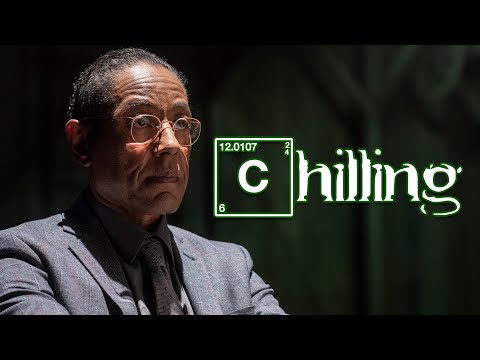
Legacy of Gus Fring: Beyond Breaking Bad
Here’s the kicker: the legacy of Gus Fring has expanded far beyond Breaking Bad. His influence ripples through various forms of media, from films to merchandise and memes. Even in spin-offs like Better Call Saul, we see how Gus’s character set the gold standard for crafting villains.
His magnetic presence makes it hard to forget he’s left an indelible mark on storytelling. From the grittiness of Albuquerque to the broader narrative landscape, you can see echoes of Gus in various characters across shows. Think of how the industry reflects, adapts, and draws from characters like him—comparable to hallowed literary figures like those found in Edgar Allan poe Books that have influenced storytelling over the ages.
Alas, he embodies the archetype that future villains will undoubtedly emulate. Gus Fring’s impact extends far beyond the confines of a television show—he remains a cultural icon. Whether it’s references, merchandise, or memes that echo his chilling line, “Last chance to look at me, Hector,” he remains a figure that won’t soon fade away.
In conclusion, the intricate layers of Gus Fring, highlighted by his duality, shrewdness, and cultural legacy, reflect a character that transcends simple storytelling in television. His life—filled with calculated moves and ruthless decisions—offers viewers a glimpse into darkness, forcing us to grapple with questions of morality, ambition, and what it means to be human. So, whether he’s operating a fast-food joint or orchestrating a show of intimidation, Gus Fring will always hold a special place in our hearts—and on our screens!
Gus Fring: The Complex Life of Breaking Bad’s Kingpin
The Man Behind the Mask
Gus Fring, brilliantly portrayed by Giancarlo Esposito, is a character that showcases the duality of charm and menace. Did you know Esposito drew inspiration from real-life figures to capture Gus’s charm? That careful balance makes Gus a fascinating character that grips the audience in “Breaking Bad.” Speaking of intriguing personalities, if you’re into unique stories from the entertainment industry, check out this piece on Lily Starfire. Gus isn’t just your typical villain; he’s a calculated businessman, running a fast-food chain as a front for his drug empire. Many fans feel this gives him a relatable quality, like when someone unexpectedly emerges as a favorite in survival Games.
A Life of Secrets
One of the standout aspects of Gus Fring is his mysterious past. While details are scarce, many theories abound regarding his background and rise to power. This air of secrecy adds layers to his character, making viewers speculate about what he does when he’s not in the restaurant or plotting behind the scenes. You might find it comparable to unexpected twists revealed in sensational stories, much like the buzz often surrounding sites like Pornout Com. Despite his ruthless methods, fans admire Gus for his strategic mind, reminiscent of popular figures like Chi Chi Rodriguez, who navigated their paths with a mix of flair and precision.
The Legacy of Gus Fring
The impact Gus Fring has made on the series is undeniable. His character raises the stakes for everyone else, implying a sense of dread that amplifies each episode’s tension. Interestingly, as the show progressed, many fans found themselves rooting for him, despite his morally ambiguous actions. It reflects a broader narrative arc similar to upcoming films like Prisoners 2, where grays often bleed between right and wrong. Plus, the notion of talent and skill can be seen as a parallel to anyone aiming for greatness, akin to the emerging star power of Bear Chance Cyrus.
Seeing how Gus Fring continues to influence narratives in pop culture after “Breaking Bad,” it’s thrilling! From memes to discussions on forums, his legacy can even spark interest in events like the upcoming Jeopardy Masters schedule. The enigma of Gus Fring serves as a reminder that every villain has a story worth unfolding. Each glimpse into his life enriches the viewer’s understanding, making Gus Fring an unforgettable character in television history.
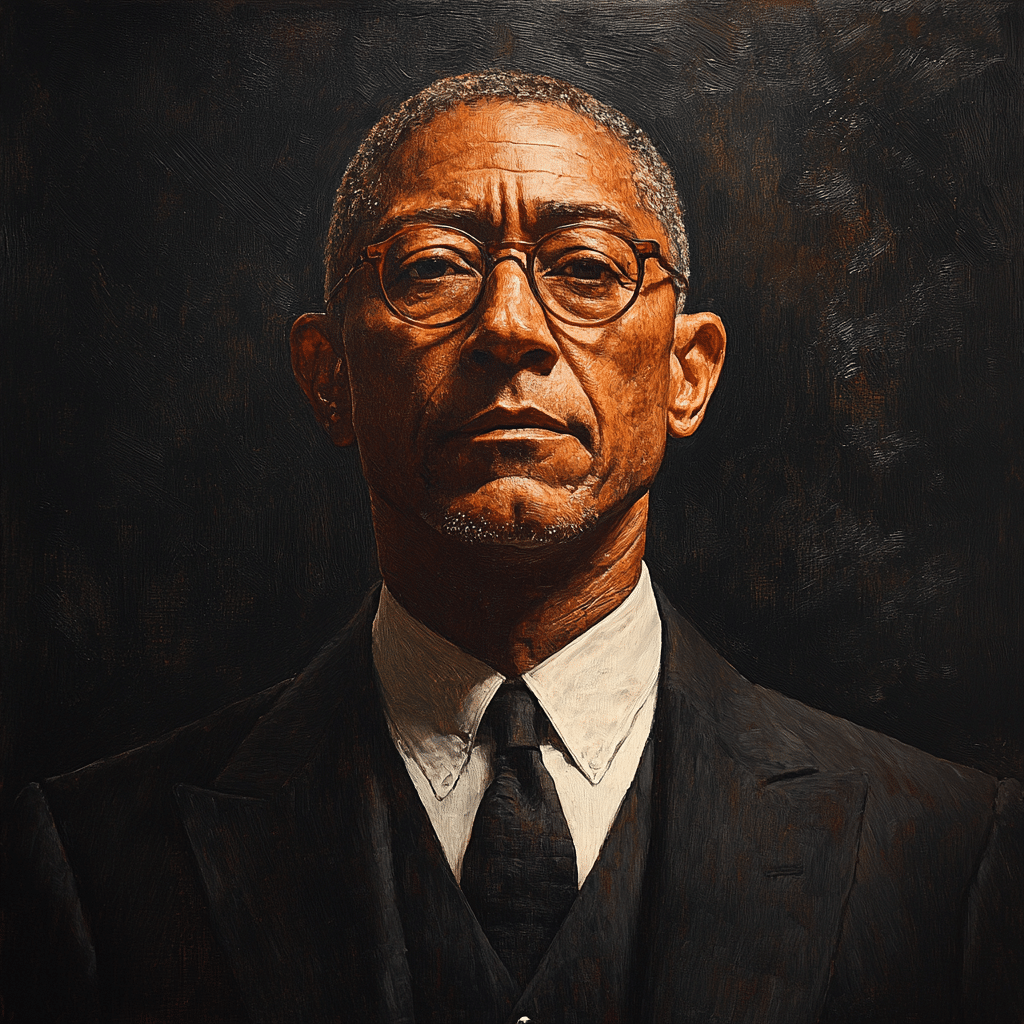
Who was Gus Fring’s lover?
Gus Fring’s lover was Maximino “Max” Arciniega, and their relationship went beyond business, as confirmed by showrunner Peter Gould in 2022.
What does Gus yell before he died?
Before he died, Gus yelled, “Last chance to look at me, Hector,” right before Hector Salamanca detonated a pipe bomb.
Is Gus Fring Black or Mexican?
Gus Fring is portrayed as Chilean-American in the series, which means he identifies with both Mexican and Chilean backgrounds.
Is Gus good or bad?
Gus is primarily seen as a bad character in the series, operating as a drug kingpin while maintaining a facade of a respectable businessman.
Why did Hector not like Gus?
Hector did not like Gus due to their tumultuous history, especially after Gus betrayed and killed Hector’s uncle, which fueled Hector’s deep hatred.
Are los pollos hermanos real?
Los Pollos Hermanos is a fictional fast-food restaurant created for the series, but it’s become iconic among fans of Breaking Bad and Better Call Saul.
Why was Gus’ death so weird?
Gus’ death was unusual because he walked out of Hector’s room after the explosion, showing a calm demeanor until his body finally collapsed.
Who kills Hank in Breaking Bad?
Hank Schrader was killed by Jack Welker, the leader of a White Supremacist gang, not Gus.
Why does Gus hate Walt?
Gus hates Walt because Walt threatens his drug empire and manipulates events to undermine Gus’s control.
Why doesn’t Gus talk?
Gus is known for being very methodical and often adopts a cool demeanor, making him seem like he doesn’t talk much, though when he does, it’s impactful.
Why does Gus Fring always wear yellow?
Gus Fring often wears yellow because it’s a visual representation of his character’s business identity tied to Los Pollos Hermanos and adds to his calm, clean appearance.
What is Gus Fring’s accent?
Gus has been shown to be afraid of unpredictability, especially when it comes to people like Walter White, whose erratic behavior presents a threat to his operations.
Who was Gus afraid of?
Gus stabbed the drug dealer because he saw him as a betrayal risk, and in that world, eliminating threats is a matter of survival.
Why did Gus stab the guy?
The real villain in Breaking Bad can be subjective, but many consider Walter White to be the main antagonist due to his transformation throughout the series, despite Gus’s own villainous actions.



